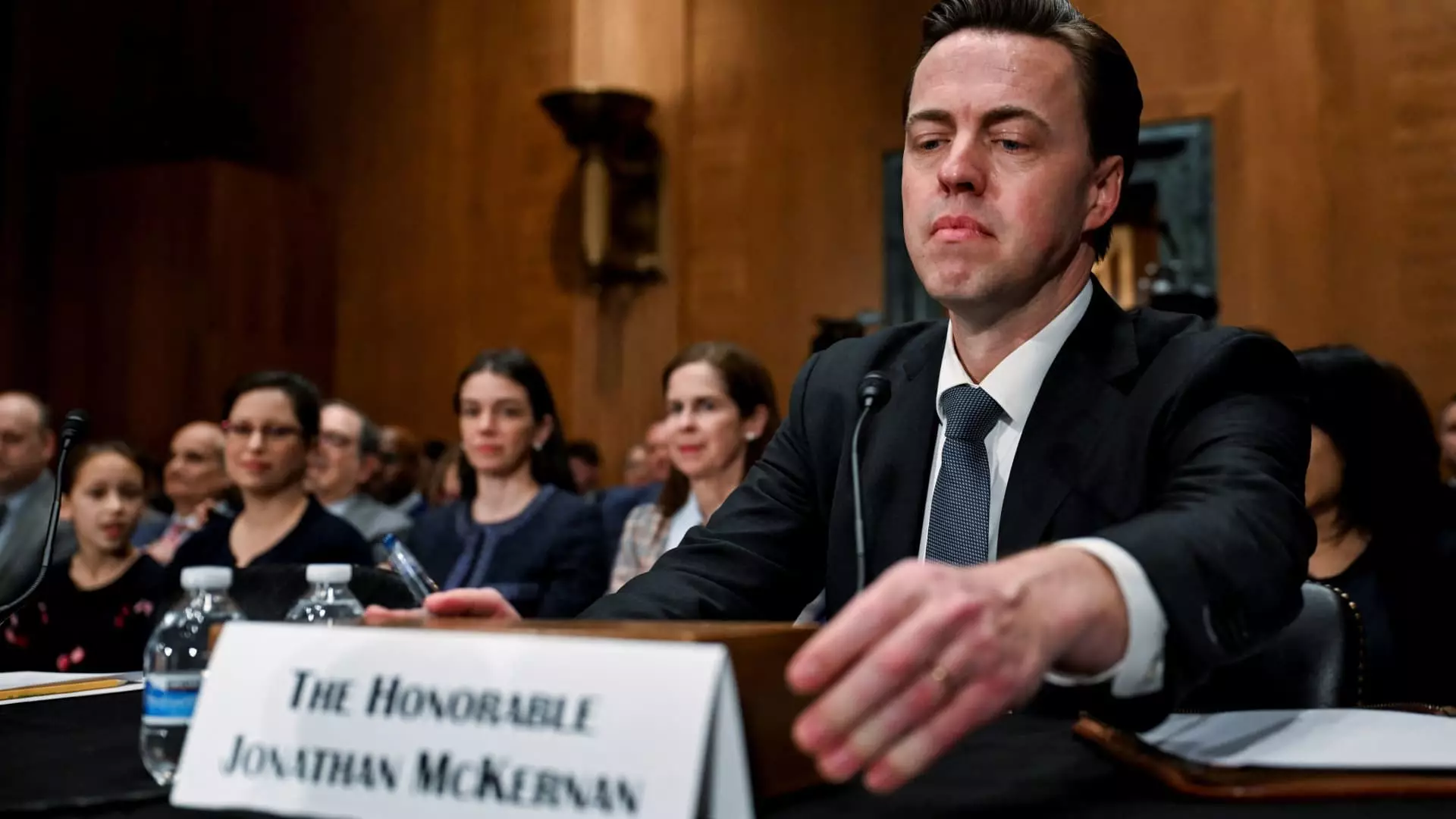The recent confirmation hearing for Jonathan McKernan, nominated by former President Donald Trump to lead the Consumer Financial Protection Bureau (CFPB), has sparked significant dialogue about the future direction of the agency. Sentiments were mixed as McKernan faced a battery of inquiries from Democratic senators, most notably Elizabeth Warren of Massachusetts. They pressed him on his commitment to fulfilling the essential legal responsibilities tied to the CFPB’s mission, particularly in light of the tumultuous financial landscape that emerged from the 2008 crisis.
McKernan’s legal background, defined by his tenure as a board member of the Federal Deposit Insurance Corporation (FDIC), provided him with a wealth of experience that should ostensibly equip him for the role. His remarks about the necessity of an effective financial regulatory system revealed a fundamental understanding of consumer protection: “Consumer protection is critical to that end,” he stated, indicating a focus on a system that serves everyday Americans. However, underlying skepticism remained among lawmakers regarding his willingness to maintain the integrity of the CFPB amidst the pressures of a politically charged environment.
While McKernan articulated broad intentions to uphold consumer rights, he did not shy away from voicing disagreements with his predecessor, Rohit Chopra. His denunciations of Chopra’s management style characterized the agency as having “acted in a politicized manner,” suggesting a deviation from its core purpose. Such criticisms, while aimed at ensuring accountability, posed the question of whether McKernan would advocate for consumers or navigate the agency within a more restrictive political framework.
He described Chopra’s CFPB as suffering from a “crisis of legitimacy,” stating a need to “correct” its trajectory if it were to fulfill its mandated role. This perspective may have resonated with some Republican members who favor reduced government oversight, but it alarmed Democrats who believed Chopra was instrumental in safeguarding consumers against predatory practices. Such divisions raise concerns about the future direction of the CFPB under McKernan’s leadership.
Operational Changes and Staff Concerns
The agency has experienced drastic operational changes since Russell Vought stepped in as acting director. Reports of mass layoffs—approximately 200 employees—and the closure of its Washington headquarters have stirred anxiety around the CFPB’s viability. The agency’s dismissals of critical enforcement lawsuits, including serious actions against companies like Capital One and Berkshire Hathaway, have intensified fears that the CFPB is being systematically dismantled.
Senator Jack Reed from Rhode Island articulated the uncertainty surrounding McKernan’s position, highlighting the potential lack of support from the Trump administration and the Office of Management and Budget (OMB). With Vought’s sweeping changes, including the cancellation of essential offices within the CFPB that cater to veterans and seniors, there is a looming fear that the agency could ultimately cease to exist as a consumer advocate.
Future Directions and Accountability
During the hearings, McKernan assured senators of his commitment to the CFPB’s statutory requirements, which include maintaining a functional website and consumer complaint lines. However, the apprehension voiced by Warren and other senators, who metaphorically likened McKernan’s appointment to being “the No. 1 horse at the glue factory,” encapsulates broader fears about the agency’s purpose under the current administration.
McKernan’s declarations about “right-sizing” the agency hint at a desire for efficiency but raise more questions than answers regarding the potential impact on consumer protections. The prospect of refocusing and holding the CFPB accountable while under pressure from budget cuts and constitutional challenges does not inspire confidence among proponents of consumer rights.
Moving forward, the CFPB’s fate lies in the balance as lawmakers and advocates continue to scrutinize how the agency will adapt to an evolving regulatory environment. McKernan’s ability to navigate these challenges will be critical—whether he will champion consumers or succumb to political interests remains to be seen. As the CFPB stands at a crossroads, its next steps will be pivotal not only for the agency’s future but also for the financial protection of countless Americans. The road ahead is fraught with complications, but the clarity of McKernan’s vision and his commitment to consumers in an increasingly politicized arena will undoubtedly shape the narrative moving forward.

